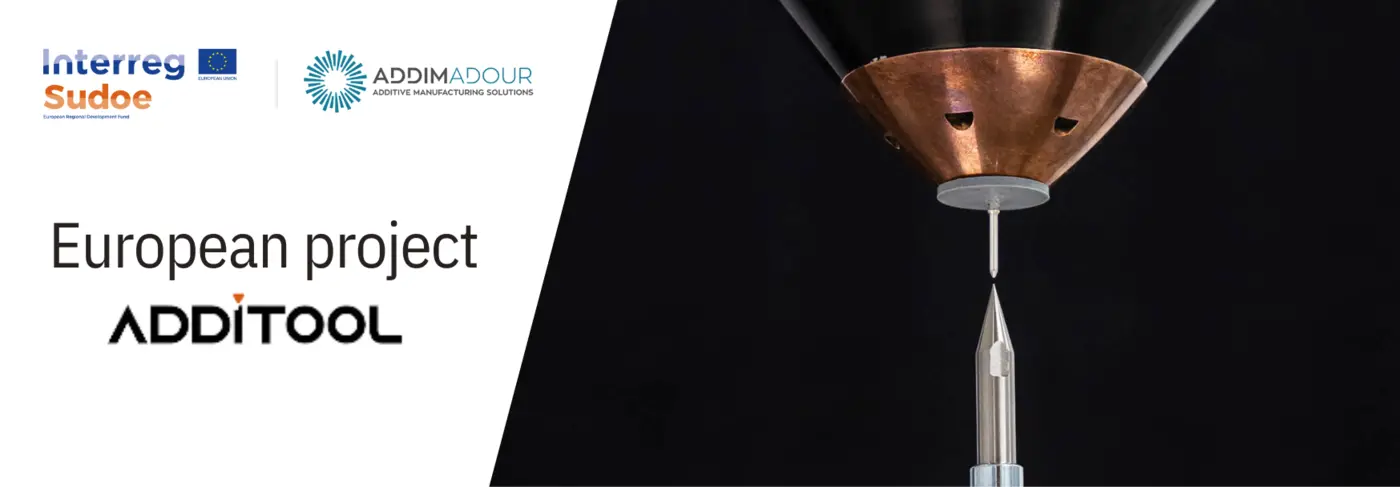ADDITOOL
- Fabrication Additive
Presentation of the ADDITOOL project
The ADDITOOL project, launched as an extension of the ADDISPACE project, focused on the industrial tooling sector.
Bringing together industrial and academic partners from France, Spain and Portugal, this collaborative project officially started on 1 November 2020 and lasted 3 years. Key partners included Addimadour & the École Supérieure des Technologies Industrielles Avancées (ESTIA), AFM CLUSTER, CEFAMOL, CEIT and ENIT, as well as major industrial players such as MEUPE, GESTAMP and MECANIC VALLEY, all actively contributing to ADDITOOL's success.
Metal Additive Manufacturing applied to the tooling sector
After conducting an in-depth study based on a survey of more than 80 companies, the consortium identified the needs of the tooling industry and assessed the maturity of the technologies available on the market in the short, medium and long term.
The project led to the definition and manufacture of 5 pilot parts to meet the needs of as many companies as possible. All of these 5 pilot parts were manufactured using the most common AFM processes, i.e. : Laser Powder Bed Fusion, DED Wire Arc, DED Wire Laser, DED Powder Laser. A new process, FFF loaded with metal powder, was also explored to make AFM more accessible. These demonstrators enabled the various participants to acquire new skills and to define precisely the necessary business rules. Each demonstrator was the subject of a technical and economic study, and specific materials were developed and characterised to best meet the requirements of industry.
Finally, once the technical part had been completed, the consortium took advantage of this increase in skills in each process to disseminate all the results and standardise the level of knowledge in the SUDOE area. New teaching programmes have been created, aimed at engineering students, industry professionals and people undergoing retraining, with the support of national public institutions.
This transfer of knowledge and skills has been underpinned by the increased mobility of researchers from the consortium in the various partner centres (16 visits organised) and by the creation of a transnational training course to share best practice in multi-process AFM. This 15-day training course was created by all the partners for final-year engineering school or university students and covers the theme of Metal Additive Manufacturing in the tooling sector: Introduction to the tooling and CAM sector, Materials suitable for tooling and CAM, Multi-process design rules, Topological optimisation, Programming machine and robot trajectories, practical work on manufacturing machines and robots.
Finally, 7 training webinars were created and broadcast to train a wider audience. The videos are available on the project website.
The results of the ADDITOOL project are available free of charge and can be downloaded from the official website: https://www.additool.eu/en/activities



